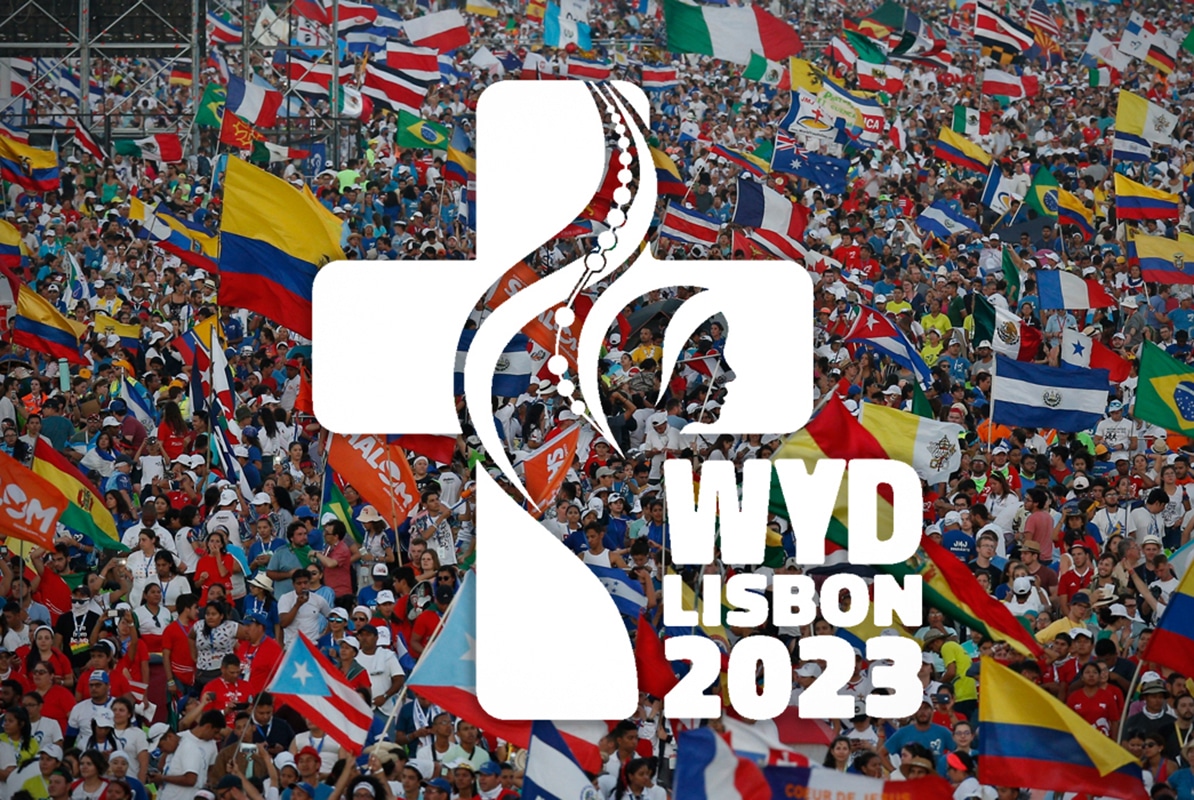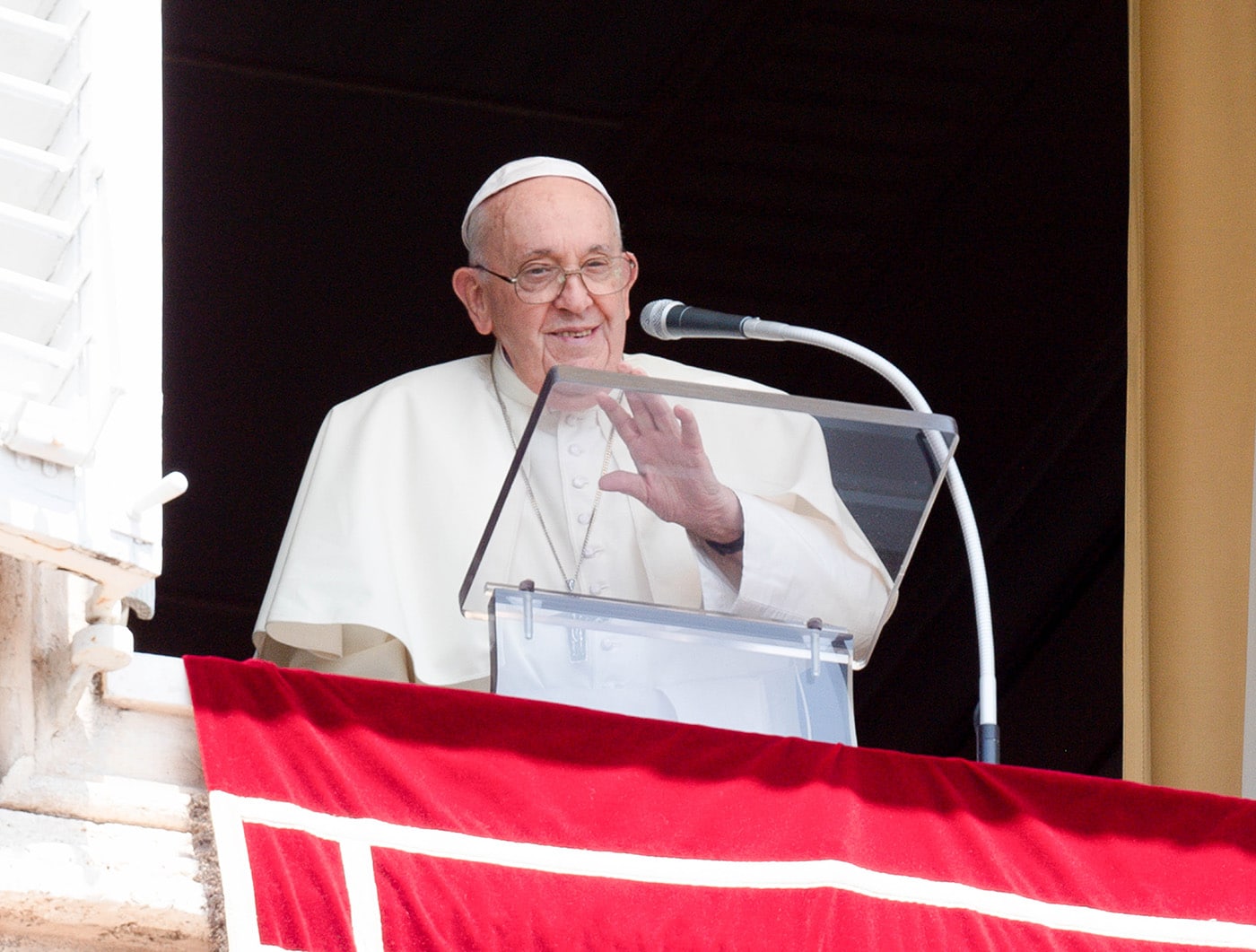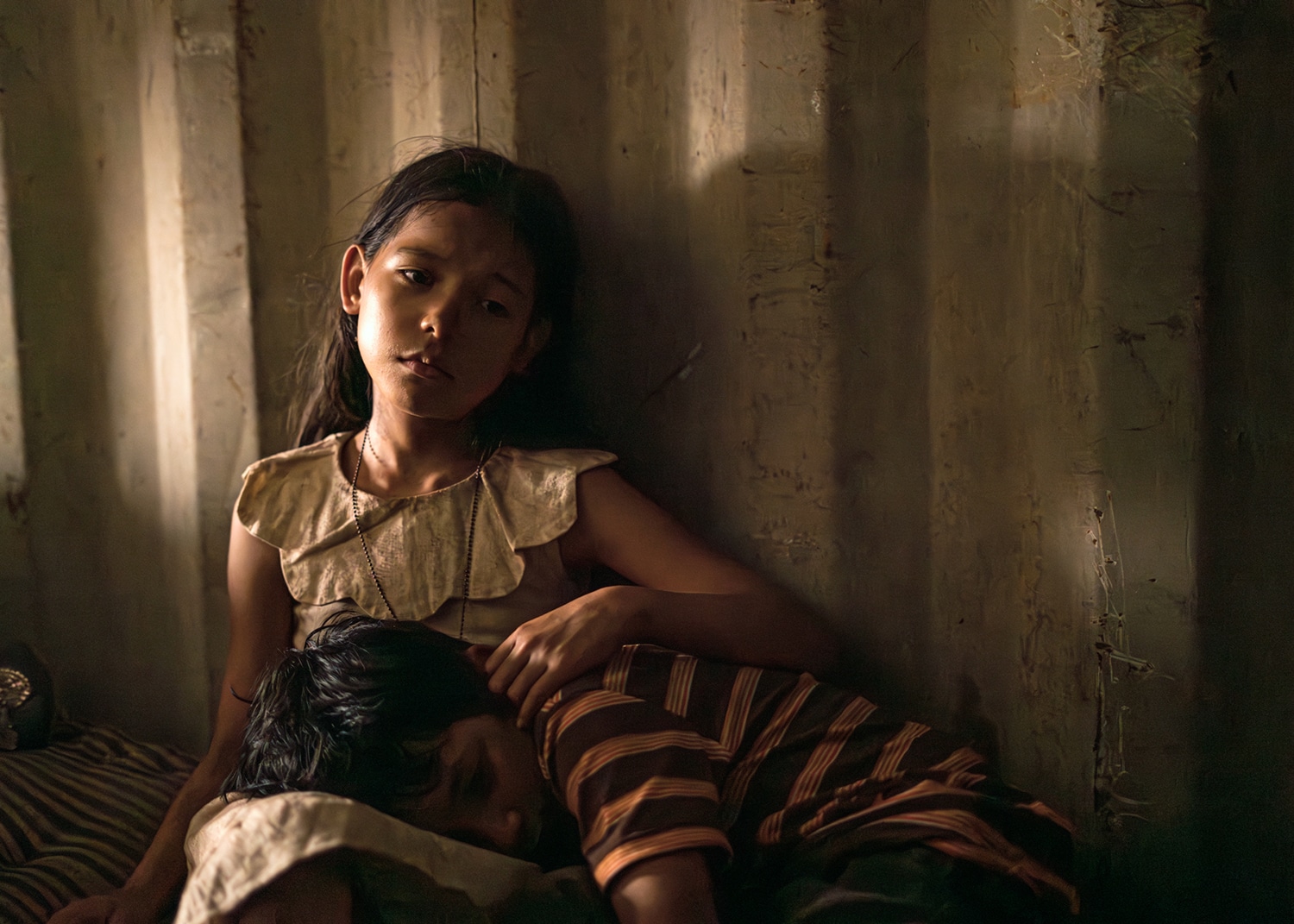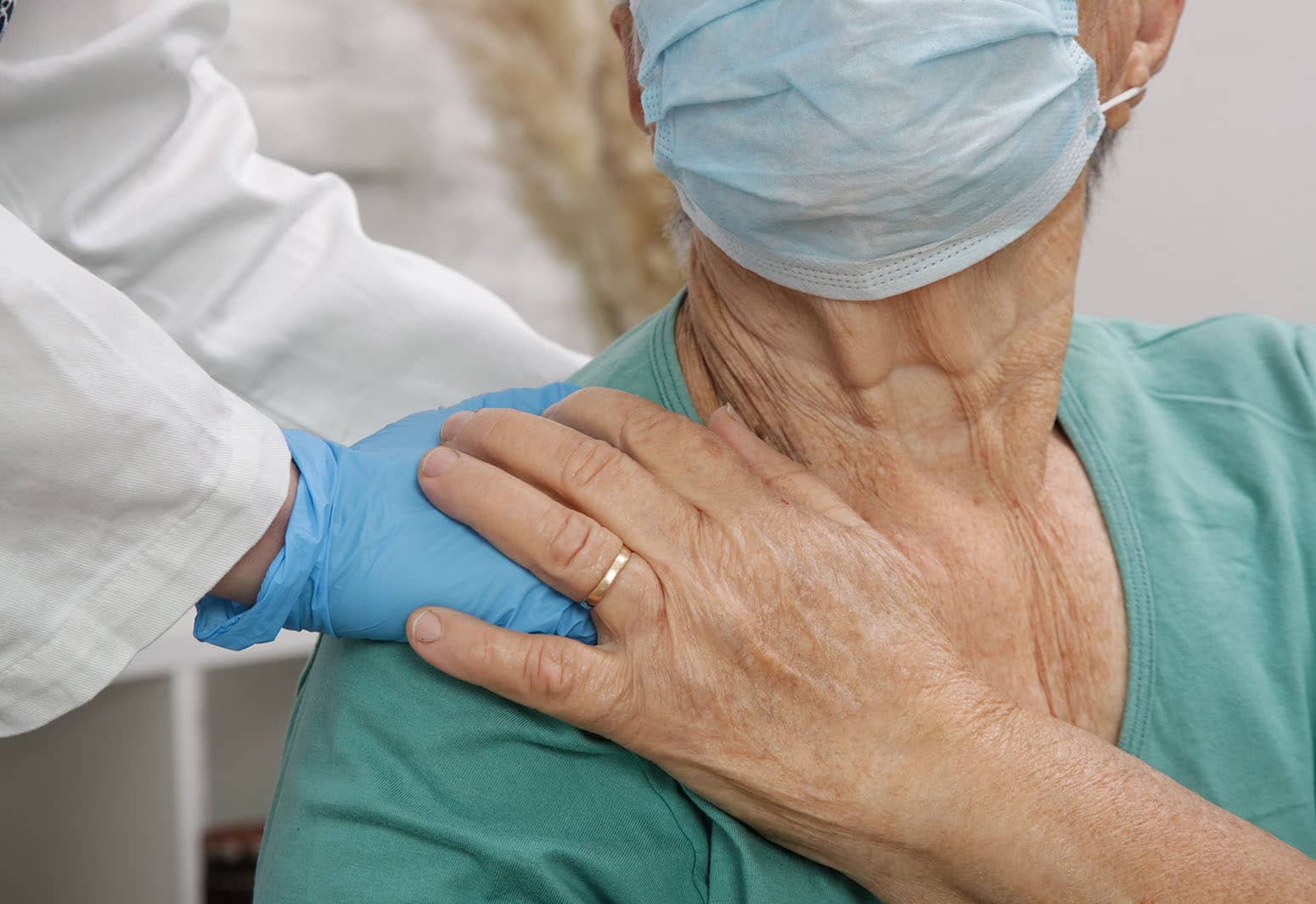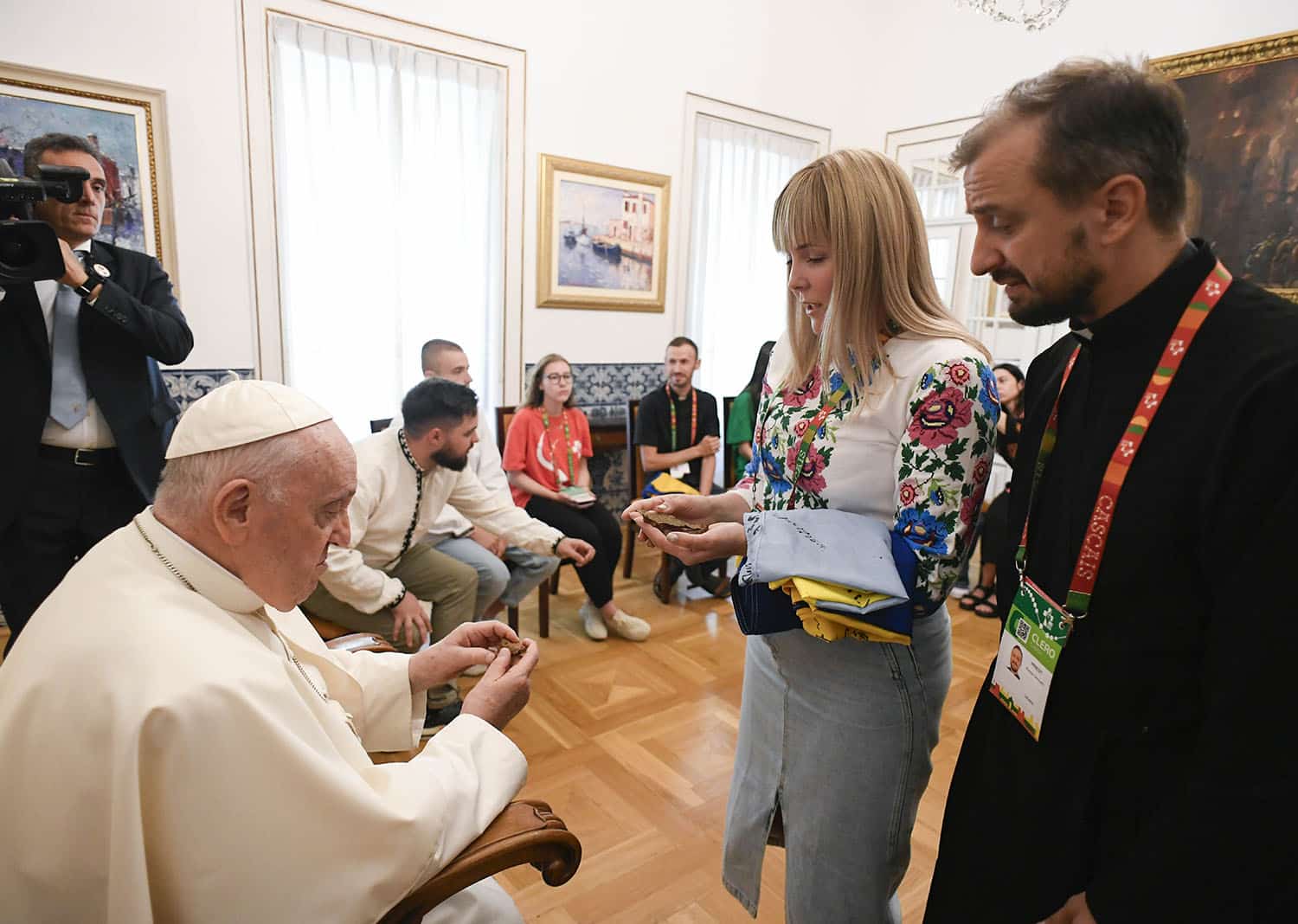The upcoming celebration of World Youth Day (WYD) in Lisbon comes at a time when both the world and the Catholic Church — especially in Portugal — are in need of unity amid divisions, uncertainty and conflicts engulfing the world.
For Leopoldina Reis Simões, a member of the WYD external relations team, the Aug. 2-6 meeting will take place in a very different world than what it was in 2019 when the last World Youth Day was celebrated.
“Truly, I find myself thinking that it seems that the last WYD (in Panama) was many years ago! The world has changed and is still in an unexpected and difficult change,” Simões told Our Sunday Visitor.
“We have had COVID-19, so WYD has moved from 2022 to 2023, with all the implications that it brings. The European continent is facing a war that we did not imagine and that has brought insecurities that we never thought we would have. This whole situation is shaking the social and economic world.”
According to Vatican News, more than 400,000 young Catholics have registered for World Youth Day, which has often been dubbed the “Catholic Woodstock.”
In a video message to WYD pilgrims, Pope Francis encouraged young people to attend and be present as witnesses of joy.
“Do not give importance to those who reduce life to ideas,” the pope said in the message published June 22. “(Those) poor people; they have lost the joy of life and the joy of encounter. Pray for them.”
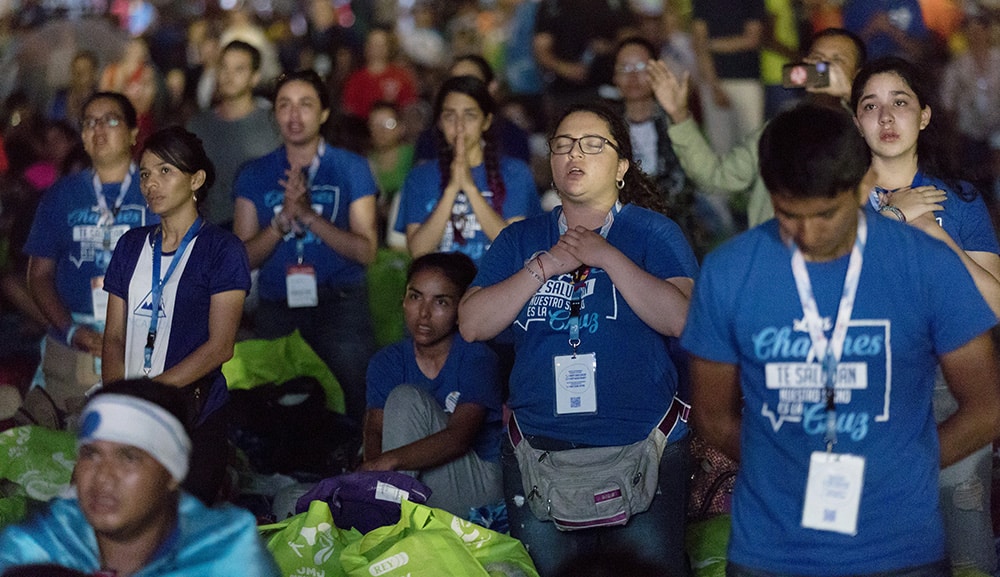
A welcoming country
Simões, who was born in and still lives in Fatima, Portugal, is no stranger to WYD, having been a part of the international communications teams for the previous World Youth Days in Panama and in Krakow in 2016.
World Youth Day in Lisbon, she told Our Sunday Visitor, will be the same as past celebrations: “a demonstration of faith and love for the pope, but also a meeting of cultures, people and certainly a party.”
“Portugal knows how to welcome; it is a friendly, welcoming country. We are used to different cultures.”
At this year’s WYD, Simões will be responsible for assisting the Vatican Accredited Media Personnel (VAMP), the group of more than 70 journalists who will accompany Pope Francis aboard his papal flight to and from Lisbon.
“It’s a very interesting job — a big one. I am happy to do it; I hope it goes well,” she said. “Every day you can see the interest of journalists, not only of this VAMP group who will come on the papal flight but of journalists from all over the world.”
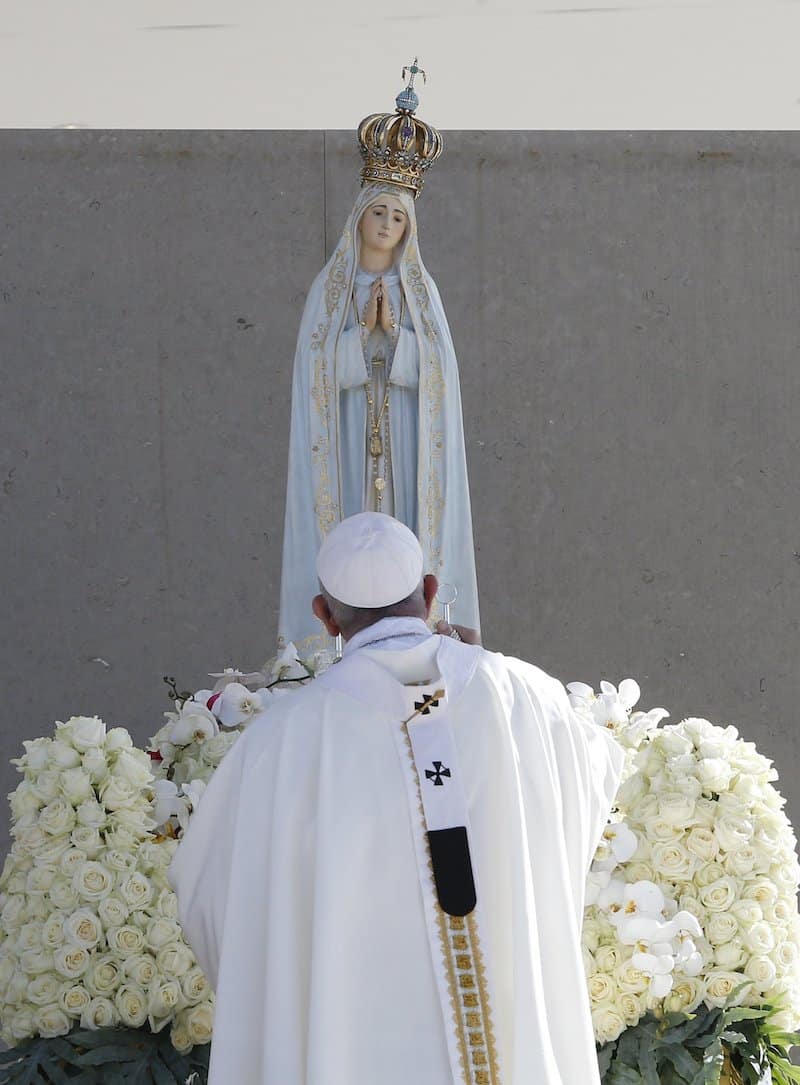
Mary at Fatima
According to the official schedule released by the Vatican, the pope will also make a brief visit to Fatima on Aug. 5, site of the famed Marian apparitions in the early 20th century that turned a once sleepy village into a place of pilgrimage and devotion for millions of Catholics worldwide.
From May to October 1917, three shepherd children — Venerable Lucia Dos Santos and Sts. Francisco and Jacinta Marto — received messages from the Virgin Mary who promised an end to World War I. The messages were also accompanied by a warning of greater sufferings lest sinners truly convert.
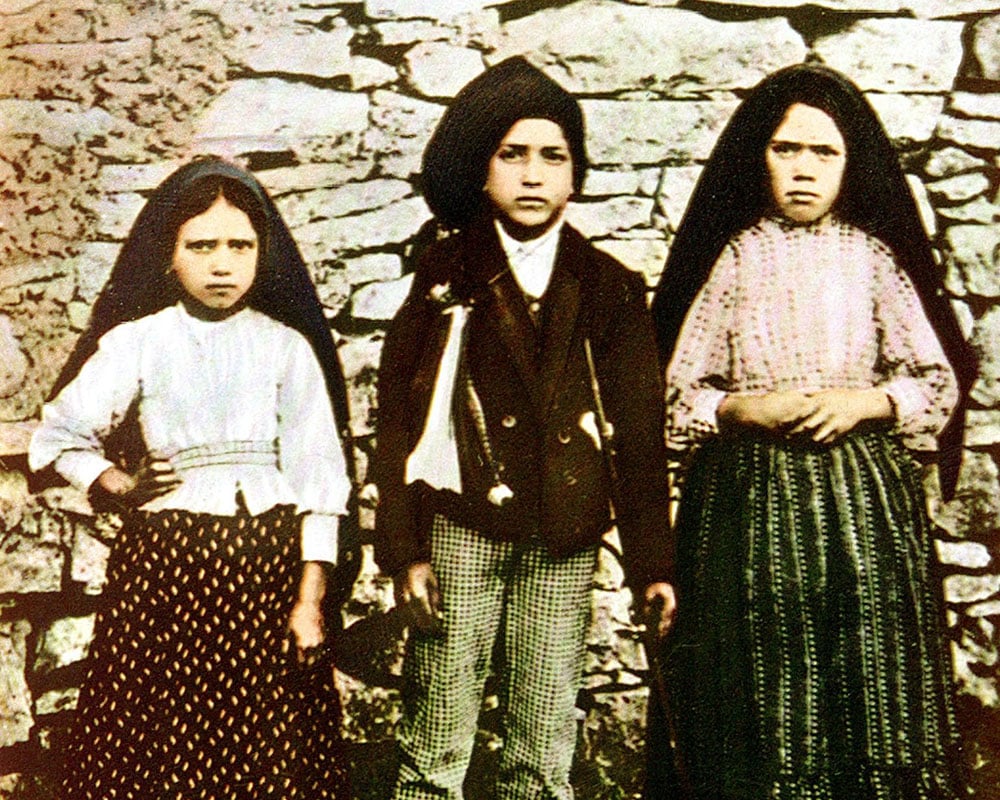
After telling the children to make sacrifices for sinners, Mary revealed three secrets. Two of the secrets were not shared publicly until 1941, and the third secret, which has been the subject of much debate, was written down by Sister Lucia and sent to the Vatican; it was not released until 2000.
The apparitions culminated with a miracle promised by Mary that was witnessed by thousands of pilgrims present at the Cova da Iria on a rainy October day, when the sun appeared to dance, spinning and changing colors.
Although the visions were deemed “worthy of belief” 13 years after the final apparition, the “dancing sun” was not recognized by the local bishop of Leiria as miraculous.
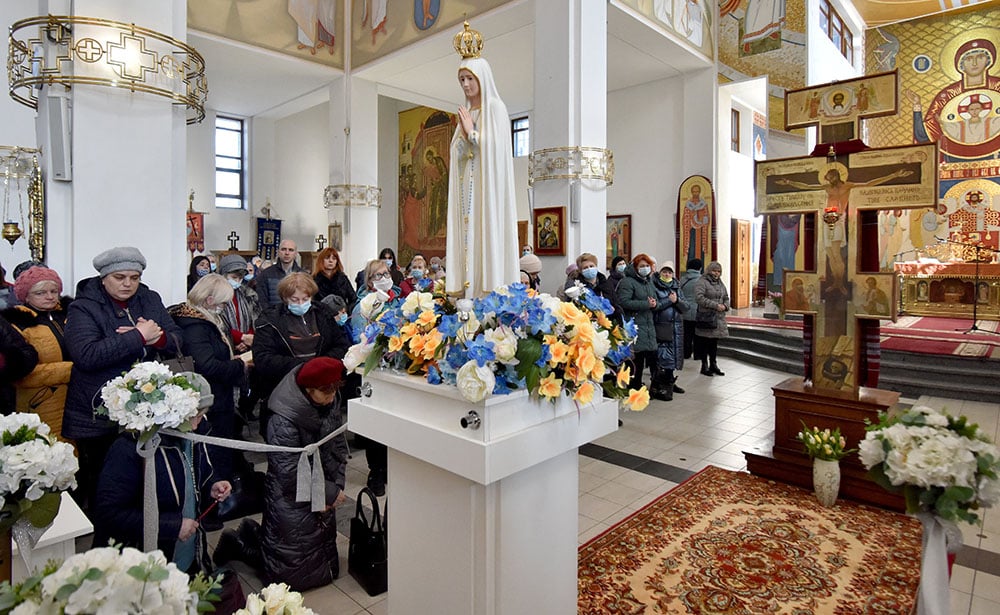
A prayer for peace in Fatima
This is the second time Pope Francis will visit Fatima. In 2017; he visited the shrine to commemorate the 100th anniversary of the apparitions.
It is hard not to draw parallels between what the state of the world was then compared to now: rising secularization, ideological divisions and the looming threat of war.
Nevertheless, for Simões, the pope’s visit to her native town “will be a great moment of the papal trip to Portugal.”
“I personally am very excited to see and feel Pope Francis’ devotion to Mary,” she said. “With his pilgrimages to places of Marian devotion, it is one more characteristic of him that makes him close to us. I remember, at WYD 2016, (his) visit to the Shrine of Czestochowa and in WYD 2019 to the Basilica of Santa María La Antigua.”
Just as Mary delivered a message of peace to three young children, Simões said the pope will entrust that same message to and pray with young people for peace in the world, especially in Ukraine.
“The message of Fatima is characterized by a constant call to prayer and conversion, which is why it remains relevant, because the Church and the world are in great need,” she said. “We must remember that this pope does not give up on calls for peace.”
“We have hope and faith that the prayers of the pope, of the pilgrims who will be in Fatima and of all those who pray for the same intention, even if far away, will be heard in heaven,” she added.
A call for reparation
Another important aspect of the message of Fatima was a call for people to cease offending God. Before the “Miracle of the Sun,” Mary — identifying herself as “the Lady of the Rosary” — told the three shepherd children she came “to warn the faithful to amend their lives and ask for pardon for their sins.”
“They must not offend Our Lord any more, for he is already too grievously offended by the sins of men,” she said.
Much as it has in other parts of the world, the Catholic Church in Portugal has not been immune to the scourge of clerical sexual abuse.
In February, an independent investigation commissioned by the Portuguese Catholic Bishops’ Conference revealed that there were nearly 5,000 cases of sexual abuse by clergy since 1950. That number, the report warned, could also be much higher.
The revelations, which sparked outrage in the country, prompted Portugal’s bishops to ask forgiveness, as well as a visit to the shrine of Fatima in April for a National Day of Prayer for victims of abuse and their families.
A mother of two, Simões said the revelations of sexual abuse by members of the clergy in Portugal and around the world have sparked a much-needed “revolution” in the Church and expressed her hope that the WYD will succeed in delivering “this response of hope that the world needs and of conversion that the Church needs.”
“On the one hand, we need to stop once and for all the abuses perpetrated, to create mechanisms so that they are not repeated (ever again). On the other hand, we must have the ability to show all the good that the Church does to the world. And WYD 2023 is a good time for that,” she said.
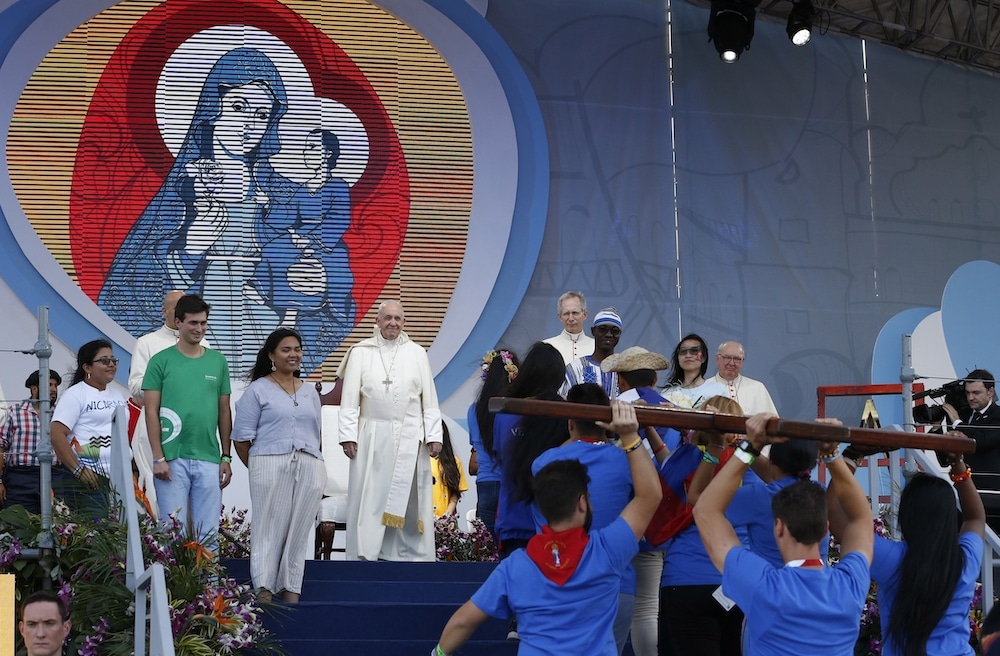
The future of the Church
During his Sunday Angelus address on July 9, Pope Francis announced the creation of 21 new cardinals. Among the most surprising appointments was the elevation of Auxiliary Bishop Américo Alves Aguiar of Lisbon.
At 49 years old, Cardinal-designate Aguiar will be the second youngest cardinal in the Catholic Church, trailing by only a few months behind Italian Cardinal Giorgio Marengo, apostolic prefect of Ulaanbaatar, Mongolia.
The Portuguese cardinal-elect also serves as president and coordinator of the WYD Lisbon 2023 Foundation, the entity charged with organizing the global Catholic event.
As it has often occurred in this pontificate, those elevated to the cardinalate are often taken by surprise and are not notified about their appointment prior to the pope’s announcement. Cardinal-elect Aguiar was no exception, Simões told Our Sunday Visitor.
Recalling that the Portuguese prelate was “surprised by the pope’s choice,” Simões said that at the time of the announcement, Cardinal-elect Aguiar was with a group of young people, helping to piece together the kits that will be distributed to WYD pilgrims.
“It was a very beautiful coincidence,” she said. “At that moment, he said that he felt that the pope’s decision was a tribute to young people.”
Speaking with journalists July 9 shortly after the announcement, Cardinal-elect Aguiar said that although the appointment “took me totally by surprise,” he was convinced that Pope Francis “had these young people in his heart, this preparation for World Youth Day, which is indispensable.”
“The pope wanted, in this way, to honor young people, to value them and to do what he tells us to do: to give young people the possibility to be protagonists of history, of their life,” he said.
His elevation to the cardinalate, he added, “is a tribute to Portugal, a tribute to the Portuguese people, a tribute to the Portuguese youth: this is what I truly feel.”
“He will be a very young cardinal, not yet 50, and this seems to me a way for Pope Francis to show the importance of the contribution of everyone — young and old — to the future of the Church,” Simões said. “The pope has referred to the intergenerational richness, where everyone is valued in their talents.”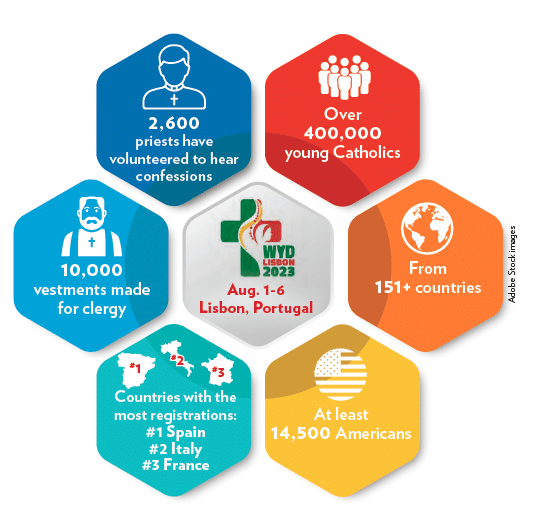
A path toward synodality
Simões also noted that the consistory that will create the 21 new cardinals will take place not long before the first session of the Synod of Bishops on synodality Oct. 4 in Rome.
Young Catholics are no strangers to the Synod of Bishops; in 2018, the synod reflected on the theme of “Young People, the Faith and Vocational Discernment,” which resulted in Pope Francis’ post-Synodal Apostolic Exhortation, Christus Vivit (“Christ is Alive”).
In his 2019 exhortation, the pope acknowledged the concerns of young men and women who “want a church that listens more, that does more than simply condemn the world.”
“To be credible to young people, there are times when (the Church) needs to regain her humility and simply listen, recognizing that what others have to say can provide some light to help her better understand the Gospel,” the pope wrote.
According to the website of the Synod of Bishops, the upcoming synod on synodality aims to be “much more than the celebration of ecclesial meetings and Bishops’ assemblies,” but rather a chance for “the entire People of God to discern together how to move forward on the path towards being a more synodal church in the long-term.”
The instrumentum laboris, or working document, of the synod, also noted the continuing concerns of young people, “many of whom feel excluded by the language adopted in church contexts, which can seem incomprehensible to them.”
Among the issues the Synod of Bishops will reflect on is how the Church can “walk together with young people” and in what ways can “a ‘preferential option for young people’ be at the center of our pastoral strategies and synodal life.”
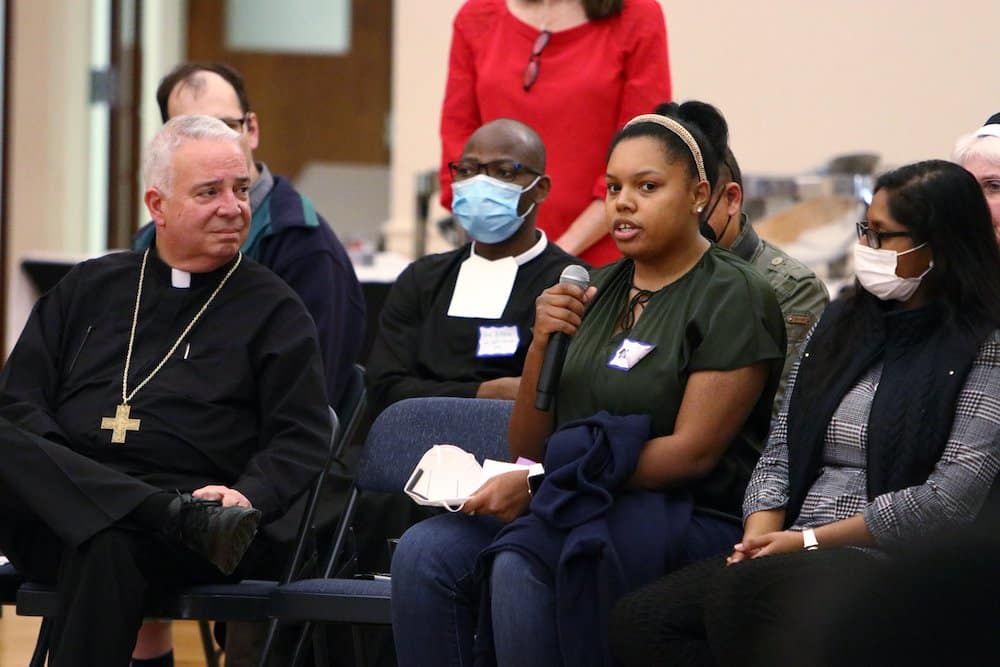
Synod and WYD collide
In that spirit, Simões told Our Sunday Visitor, the catecheses that will be offered to young people during World Youth Day will be made “in a synodal context, with this way of being a church similar to the first Christians who prayed together, who shared their doubts and joy and who decided together.”
Furthermore, she said, the general secretariat of the Synod of Bishop will be present at World Youth Day and will occupy a space in a park near Lisbon’s Tagus River that will host a four-day “Vocational Fair” during WYD.
According to the WYD website, the “vocational fair” will give young people an “opportunity to attend talks and testimonies, to get in touch with different movements, associations, communities, religious orders and projects of social nature having the opportunity to get to know better the variety of charisms that make up the ‘beautiful garden of the Church.'”
“It will also be possible to find spaces of silence that break with the normal hustle and bustle of the fair, where young people can discover God,” the website stated.
Simões said that at the vocational fair, the presence of the synod’s general secretariat is not just about sharing “information and experiences about the synodal journey” and “getting attention for the October assembly.”
“The general secretariat wants to do more,” she explained. “It aims to offer young participants themselves the opportunity to experience spiritual conversion as a pastoral tool, thus listening to their voices, their questions, (and) their dreams for the Church.”
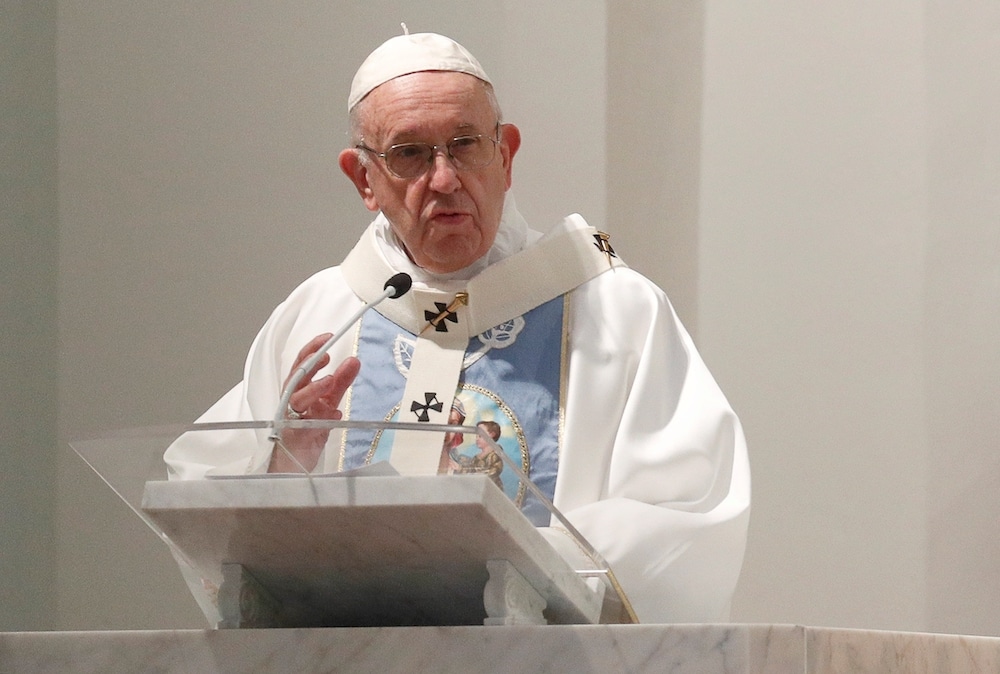
| Pope at World Youth Day 2019 |
|---|
| Brothers and sisters, the Lord and his mission are not a “meantime” in our life, something temporary, they are not only a World Day of Youth, they are our life today, our life of journeying ahead!
In a special way throughout these days, Mary’s fiat has been whispering like a kind of music in the background. She not only believed in God and in his promises as something possible, she believed God himself and dared to say “yes” to taking part in this now of the Lord. She felt she had a mission; she fell in love and that decided everything. May you feel that you have a mission, may you fall in love; the Lord will decide everything. As in the synagogue of Nazareth, the Lord stands up again among us his friends and acquaintances; he takes the book and says to us “Today this Scripture has been fulfilled in your hearing” (Lk 4:21). Dear young friends, do you want to live out your love in a practical way? May your “yes” continue to be the gateway for the Holy Spirit to give us a new Pentecost for the Church and for the world. Pope Francis, Jan. 27, 2019, Homily given during World Youth Day Panama |
A way forward
Before concluding his video message, Pope Francis gave one more piece of advice for today’s young men and women, urging them to communicate with others using “the three languages of life: the language of the head, the language of the heart and the language of the hands.”
“The language of the head to think clearly on what we feel and what we do. The language of the heart so that we may profoundly feel what we think and what we do. And the language of the hands to effectively do what we feel and what we think,” the pope said.
For Simões, seeing the dedication of young people on a daily basis has been a source of inspiration for her and a hope for the future of the Catholic Church.
“What I see daily from the group of young people from all over the world who work at the WYD headquarters encourages me a lot, because you can see that young people are determined and when they want something, they work and dedicate themselves, they know how to work as a team and pray together,” Simões said.
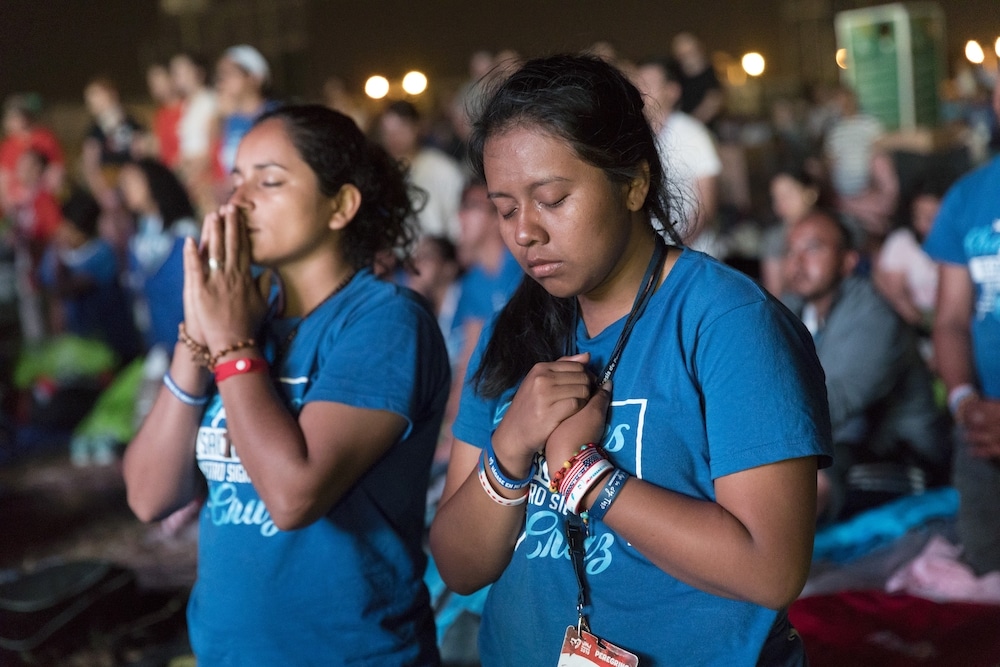
“Just this experience that we are having would be worth it,” she said.
Noting the hundreds of thousands of young men and women who will attend the celebrations in Lisbon and online, Simões added that she is certain the experience “will give them the encouragement they need.”
World Youth Day in Lisbon will also be the first international trip the pope will embark on after undergoing a three-hour surgery in June to repair a painful hernia, which had developed after a previous operation in 2021.
The surgery, coupled with the 86-year-old pontiff’s persistent knee problems that have required him to use a wheelchair or walk with the assistance of a cane, prompted concerns about his health and his ability to travel.
Nevertheless, in his video, the pope, holding up an official WYD book bag, said he was “all ready because I really want to go.”
“Some think that due to illness, I won’t be able to go,” he said. “But the doctor told me I can go, so I will be with you.”
Simões told Our Sunday Visitor that despite his age and recent illnesses, “this pope is a young man, he is active, he is creative and he is unexpected, in a good way. (He is) taking things forward, moving forward.”
That urge to move forward, coincidentally, was the final appeal Pope Francis made to young people going to World Youth Day in his message.
“Keep moving forward, be brave, and see you in Lisbon.”

